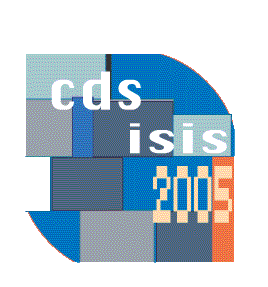For more than 40 years FAO has collected legislation on food and agriculture and disseminated it through the publication Food and Agricultural Legislation. In the mid 1990s, it was decided that with technological progress the legal information resources at FAO should be computerized. Since then, the first application of DOS ISIS has been implemented in order to create a computerized legal information system, FAOLEX. In the late 1990s, FAOLEX database moved to a more advanced ISIS application and was published on the WEB. To this end the Legal Office used the first Linux version of WWW-ISIS.
FAOLEX has a trilingual search interface (English, French and Spanish) and contains information in either English, French or Spanish. It is popul ated by worldwide laws and regulations concerning food, agriculture and renewable natural resources, including environment, fisheries, forestry and water. Most of the material comes from the official gazettes sent by FAO's Member Nations pursuant to Article XI of the FAO Constitution. Legislation is summarized, by specialized personnel, and indexed in English, French or Spanish. The language of the records is primarily based on the originator's language: English for English-speaking countries, French for French-speaking countries and Spanish for Spanish-speaking countries. Secondly, if the original language of the available text is none of the above the three languages, the language of communication of the originating country is used.
In addition, FAOLEX also features also internationa l treaties and agreements related to food and agriculture and, in particular, to the non-navigational uses of international watercourses. Approximately one-hundred-and-fifty post-1980 of such international treaties and agreements are available in the database, and are searchable also by river or lake basin through WATERLEX.
All of the information is indexed and abstracted, and the users of FAOLEX have direct access to the abstracts and indexing information about each text. Information contained in FAOLEX can be easily retrieved through various search options such as main subjects, countries, geographical areas, territorial subdivisions, keywords (+supported search), year of text, words from title, type of text, language of record.
The information inserted in FAOLEX is classified firstly by main subjects (Agriculture, Air & Atmosphere, Cultivated plants, Livestock, Energy, Environment gen., Fisheries, Food, Forestry, Land & soil, Mineral resources, Sea, Water, Waste & Hazardous Substances and Wild species & Ecosystems). Secondly, the information is classified by keywords, and then into four major categories of & quot;type of text & quot;, i.e. International Agreements, Legislation, Regulations and Miscellaneous.
Full texts of legislation are linked to the summaries in pdf, htm or word formats.
For 10 years the FAO Legal Office has been providing through FAOLEX reliable information to governments, practitioners, NGOs and academics
More than 1,000 international organizations, universities, libraries, government sites, etc. link to FAOLEX from their websites.
The FAOLEX past and present experience, as well as future developments will be exposed. In addition, in tegration issues with other legal databases (mainly ECOLEX) will be addressed.
The FAOLEX database has been developed with the assistance of ICIE, Institute for Computer Information Ëngineering, in the person of Mr Henryk Rybinski.
